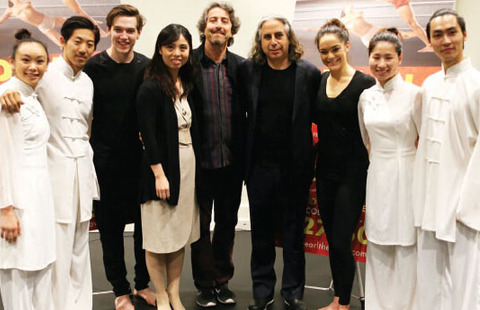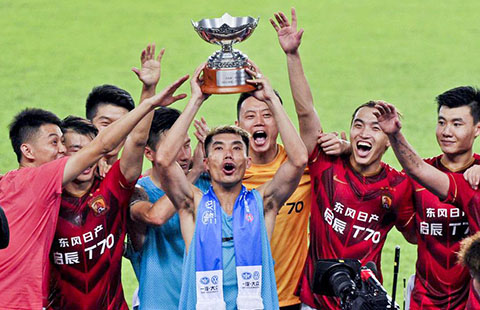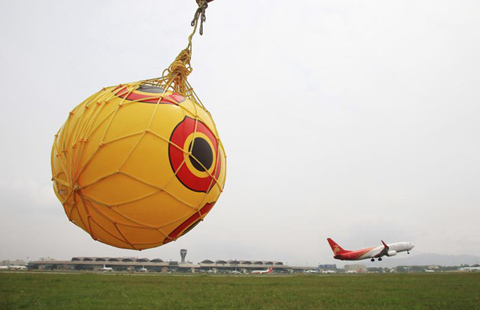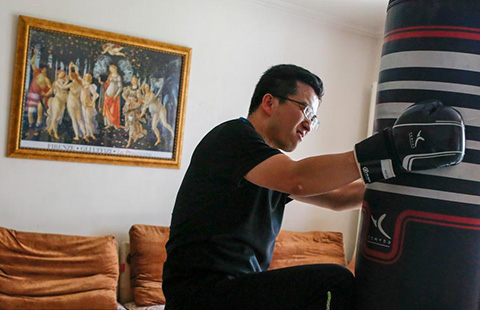Venezuela funds bus plant venture
Updated: 2015-07-27 04:42
By YAN DONGJIE(China Daily Latin America)
|
||||||||
Venezuela President Nicolas Maduro approved a 480 million VBF ($762,000) working fund for a joint plant project between the Venezuelan government and China's Zhengzhou Yutong Bus Co.
The proposed bus-assembly plant, to be based in Venezuela's northwestern state of Yaracuy, is expected to produce around 3,600 buses a year and to provide the main parts of buses and official vehicles in Venezuela.
Maduro approved the working fund on July 17. He authorized the project in November 2013, and officially signed to start in July 2014 when President Xi Jinping visited Venezuela.
The 300,000-square meter plant is almost complete.
"Hopefully, it can start to produce at the end of this year, maybe October," said Wang Feng, a manager of the overseas marketing department at Zhengzhou Yutong Bus Co.
Maduro said: "Thanks to the cooperation with China, Venezuela is going to have our own bus production line."
Before this China-Venezuela bus-assembling plant project, Venezuela couldn't manufacture buses itself but could only import finished products from countries such as Brazil, America, and China.
Yutong has exported more than 5,000 buses to Venezuela in the past years. The country approved of the quality of vehicles produced by China, which became a base of the joint project.
On the same day Maduro approved the working fund, Yutong delivered another 350 buses for Venezuela's public transportation system. Maduro attended the delivery ceremony, underlining the importance of industrialization for Venezuela.
The Venezuelan government plans to add 1,000 new buses to its urban transportation system within this year.
Maduro hopes that Venezuela can strive for independency in technology and finance.
Venezuela has been stimulating its domestic bus industry over the past years through policies such as restricting the import of vehicles and employing techniques used abroad.
In the project, Yutong has sent designers and technicians to Venezuela, helped to look for component suppliers, and trained workers.
"This is a new way of cooperation for Yutong in Latin America." Wang said.
By "new", Wang means that Yutong doesn't only participate in the project by providing techniques and designers, but also as a stockholder. "We are a partner, not just a provider."
Yutong plans a $417 million investment into this project in total, which takes 15 percent of the whole. The Department of Industry and Ministry of Transport in Venezuela will fund the rest.
Yutong estimated the plant could create around 2,000 local jobs, which will have a good effect on the state of employment in Venezuela.
Wang believes that the project benefits Venezuela in several ways.
"The plant can add to Venezuela's revenue," Wang said. "Besides, localized purchases will drive the development of relative industries there."
Yutong said that the vehicles produced are to be mainly used as autobuses, long-distance buses, and official cars in government and central enterprises.
"We may also expand to the private car market in Venezuela, and even markets in nearby countries." Wang said.
Apart from Yutong Bus, other Chinese automobile enterprises are also being lured to Latin American countries like Brazil, Argentina, Venezuela, Chile, and Cuba.
Tang Yuxiang, chairman of Zhengzhou Yutong Bus Co., said that the project will allow Yutong to further intensify its engagement in Venezuela.
"We will not only export buses, but also secure long-term development through offering parts and after-sales services in the country."

 Across America over the week (July 17- July 23)
Across America over the week (July 17- July 23)
 Unusual but true: 'Love' conquers all
Unusual but true: 'Love' conquers all
 Six dead as rainstorms wreak havoc in China
Six dead as rainstorms wreak havoc in China
 Guangzhou Evergrande stun Bayern in penalty shootout
Guangzhou Evergrande stun Bayern in penalty shootout
 10 domestic films to see this summer
10 domestic films to see this summer
 Tricks airports use to scare away birds
Tricks airports use to scare away birds
 The highs and lows of a stock market investor
The highs and lows of a stock market investor
 Culture insider: 7 things you may not know about Major Heat
Culture insider: 7 things you may not know about Major Heat
Most Viewed
Editor's Picks

|

|

|

|

|

|
Today's Top News
Astronomers discover most Earth-like planet yet
Seattle Chinatown leader killed in shooting
Flight details of Obama's Kenya trip leaked
2 killed, several injured in Louisiana theater shooting
Deficit hits $104b in first half
Obama to meet extended family members in Kenya
More Chinese companies become world top 500
Earth-like planet discovered using NASA's Kepler space telescope
US Weekly

|

|






